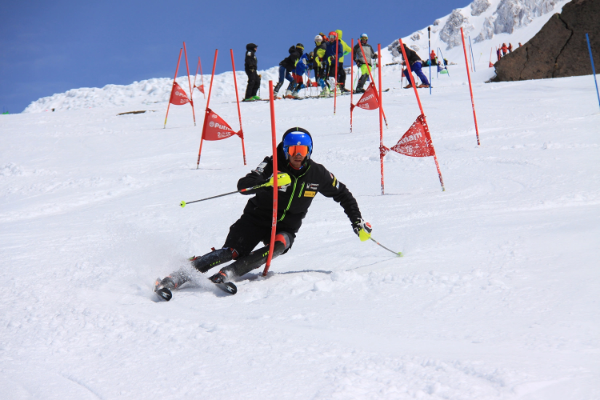Skiing is more than just a sport; it is a thrilling game that combines skill, speed, and strategy. It is enjoyed by millions around the world, offering excitement both on the slopes and in competitive events. This article will explore the skiing game in detail, covering its history, types, techniques, equipment, and the various competitions involved.
History of Skiing
Skiing has a rich history that dates back thousands of years.
Origins
The earliest evidence of skiing comes from ancient artifacts found in Scandinavia, dating back to 5000 BC. These early skis were made from wood and were used primarily for transportation and hunting in snowy regions.
Evolution
Over the centuries, skiing evolved from a means of survival to a recreational activity. In the 19th century, skiing became popular in Europe, especially in Norway. It was during this time that skiing transitioned into a sport with organized competitions.
Modern Era
The first ski club was established in Norway in 1861. Skiing continued to gain popularity, leading to the formation of the International Ski Federation (FIS) in 1924. The first Winter Olympics included skiing events in Chamonix, France, marking a significant milestone in the sport’s history.
Types of Skiing
Skiing encompasses various disciplines, each with its unique style and rules. Here are the main types:
Alpine Skiing
Alpine skiing is one of the most popular forms. It involves skiing downhill on snow-covered hills. Skiers use fixed-heel bindings and navigate through a series of gates in competitive events.
Techniques
- Carving: This technique involves making clean turns on the edges of the skis.
- Parallel skiing: Skiers keep their skis parallel while turning.
Cross-Country Skiing
Cross-country skiing is a more endurance-focused discipline. It involves traveling across flat or rolling terrain, using a technique that resembles running.
Techniques
- Classic Style: This technique resembles walking or running, where skiers keep their skis in a parallel track.
- Skating: In this style, skiers push off the edges of their skis in a motion similar to ice skating.
Freestyle Skiing
Freestyle skiing adds an element of acrobatics to the sport. It includes tricks and jumps, often performed in terrain parks.
Types of Freestyle Events
- Mogul Skiing: Skiers navigate a course of bumps and perform jumps.
- Aerials: Skiers perform flips and spins while jumping off ramps.
Ski Jumping
Ski jumping is a unique discipline that involves skiing down a ramp and jumping as far as possible. Athletes are judged on distance and style.
Nordic Combined
This event combines cross-country skiing and ski jumping. Athletes compete in both disciplines, showcasing their versatility.
Skiing Techniques
To excel in skiing, mastering various techniques is crucial. Here are some fundamental skills every skier should learn:
Stance and Balance
A proper skiing stance is vital for maintaining balance. Skaters should keep their knees slightly bent, with their weight centered over the skis.
Turning
Turning is essential for navigating slopes. There are several types of turns:
Snowplow Turn: Used by beginners to slow down.
Parallel Turn: More advanced technique, where both skis turn together.
Stopping
Knowing how to stop safely is crucial. The snowplow technique is often used for beginners, while more advanced skiers may use a parallel stop.
Essential Ski Equipment
Having the right gear is vital for an enjoyable skiing experience. Here are the essential items every skier needs:
Skis
Choosing the right skis depends on the skiing type. Alpine skis are shorter and wider, while cross-country skis are longer and thinner.
Bindings
Bindings connect the skier’s boots to the skis. They should be adjusted to the skier’s weight and skill level for safety.
Boots
Ski boots should fit snugly to provide support. They come in various styles, including alpine, cross-country, and freestyle.
Poles
Ski poles help with balance and turning. The correct length is essential, typically reaching the skier’s armpit.
Clothing
Dressing appropriately is crucial for comfort. Skiers should wear moisture-wicking base layers, insulated jackets, and waterproof pants. Accessories like gloves, hats, and goggles are also essential.
Safety in Skiing
Safety is a top priority when skiing. Here are some tips to stay safe on the slopes:
Know the Rules
Each ski resort has its own rules and guidelines. Familiarize yourself with these before hitting the slopes.
Use Proper Gear
Always wear a helmet and consider other protective gear, such as wrist guards and knee pads.
Stay Within Your Limits
It’s essential to ski within your ability level. Start on easier runs and gradually progress to more challenging terrain.
Be Aware of Your Surroundings
Stay alert and be aware of other skiers around you. Collisions can happen, especially in crowded areas.
Competitive Skiing
Skiing has a vibrant competitive scene. Events are held worldwide, from local races to international championships.
Types of Competitions
FIS World Cup: A prestigious series of races held throughout the winter season, featuring the best skiers in the world.
Winter Olympics: The most significant international event for winter sports, including skiing.
X Games: A competition focused on extreme sports, including freestyle skiing.
Training for Competitions
Training for competitive skiing requires dedication. Athletes often train year-round, focusing on strength, agility, and technique. They may also participate in dryland training during the off-season.
Conclusion
Skiing is a thrilling game that combines skill, speed, and adventure. Whether you enjoy alpine, cross-country, or freestyle skiing, there is something for everyone. Understanding the history, techniques, equipment, and safety measures enhances the skiing experience.
As you explore the world of skiing, remember to enjoy the ride and embrace the beauty of the snowy landscapes. Whether racing down a slope or gliding through a serene forest, skiing offers an exhilarating escape from everyday life. So grab your gear, hit the slopes, and experience the joy of skiing for yourself!
Related topics:
- The 11 Best RV Campgrounds on the Beach
- Cheap RVs for Sale by Owner: Your Guide to Affordable Adventures
- Best Campervan Hire Gold Coast


